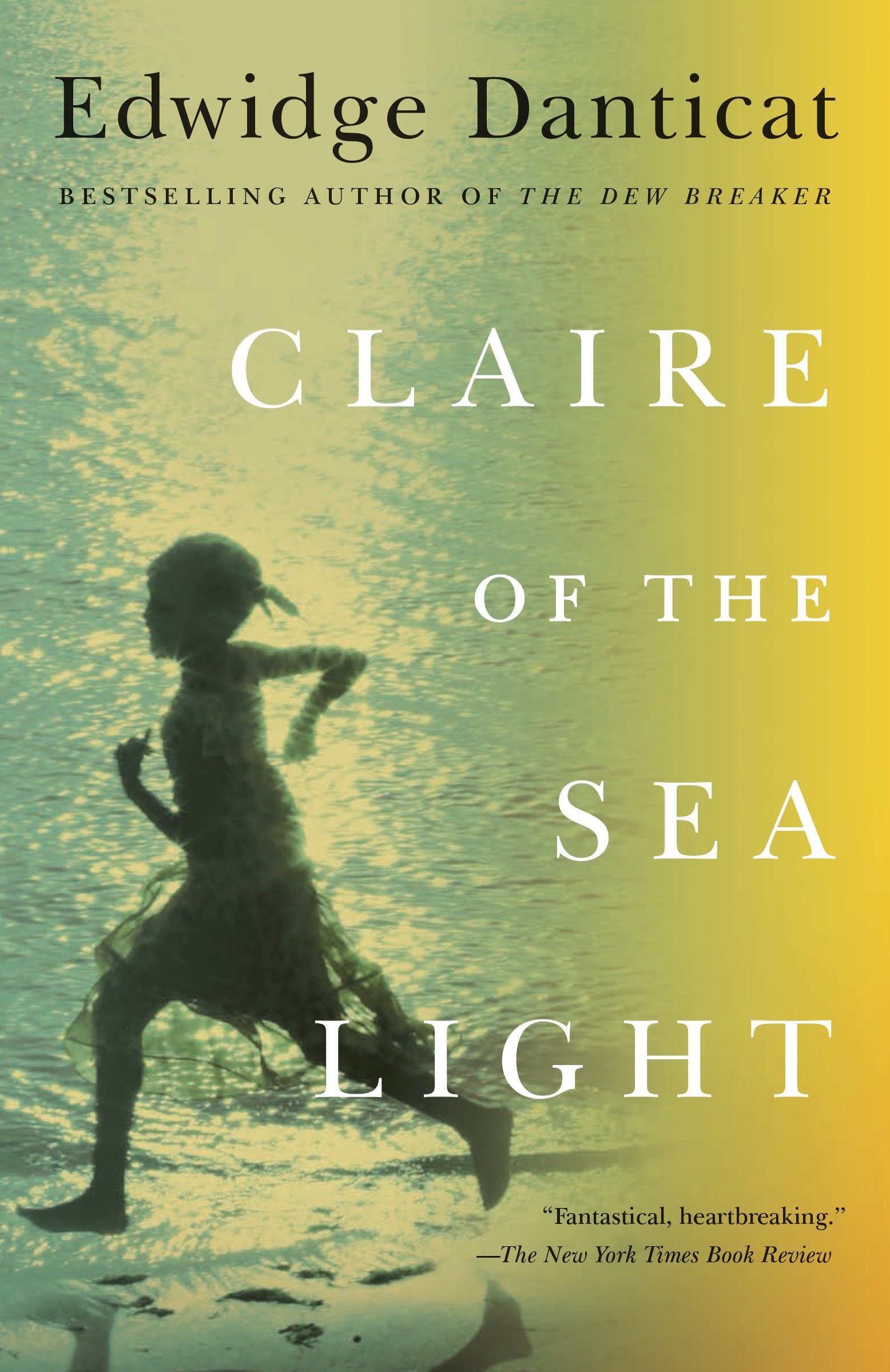Edwidge Danticat: Making Space For The Dead
Shortly after the catastrophic earthquake that struck Haiti in January of 2010 killing more than 300,000 people, injuring 300,000 more, and leaving one million homeless, the Haitian-American author Edwidge Danticat published a tribute to her late cousin Maxo.
“My cousin Maxo has died,” Danticat wrote in the New Yorker. “The house that I called home during my visits to Haiti collapsed on top of him.” In the piece Danticat describes Maxo’s difficult birth along with all the heroic compassion and quirky peccadilloes that endeared him to family and friends. Not long before that Danticat had received a National Book Critics Circle Award for Brother, I’m Dying (2007), a chronicle of her father’s death, and also that of her uncle, Joseph. The 81-year-old died in Florida after Homeland Security officers threw him into detention without his medication. Earlier this year, she wrote a lively account of her aunt who suffered a fatal fall in Port-au-Prince. Tante Rezia’s last words were “My head,” which Danticat found ironic. “Whenever anyone in the family talked about Tante Rezia, we would talk about her head. She had an excellent memory, which also meant that she held grudges the longest.”
Upon learning of the loss of a loved one, Danticat’s immediate impulse is write them vividly back to life. Hers is more than a simple desire to commit the missing to memory; it is a stubborn act of resurrection meant to conquer death. And if that sounds a touch grandiose, let us say she takes death on or she defies it—a Haitian preoccupation if there ever was one, cultivated over long decades of political, economic, and environmental upheavals. (For what is Vodou, really, but an acknowledgment that the living must make space for the dead?)
In Danticat’s new novel, Claire of the Sea Light, life and death are as closely connected as Siamese twins. It is set in the Haitian town of Ville Rose in contemporary times before the earthquake. The action unfolds through a series of interlocking personal stories that form a kaleidoscopic picture of Haitian life. Danticat delineates the relationship between the classes, between the genders, between the ghetto and the rich enclave, between parents and children, between present and past, between birth and death.
One transcendent theme is the love of a parent for a child. At the heart of Danticat’s tale is a poor fisherman, a widower, who contemplates giving away his little girl so she can have a better life. The daughter, Claire, loses her mother the day she is born. Another character loses her husband—he is assassinated—as she prepares to give birth to their child.
“Places where infant mortality rates are high and there are high mortality rates for mothers, the day someone is born is often as much a day of grief as celebration,” Danticat explains over the phone from Miami. “People are aware of death. It is a daily struggle.”
“I wish I could say Haitians have special insight,” she adds. “But I think anywhere in the world where people live so close to extremes—in nature, in political abuse, where people are at the mercy of so much—you have a special kind of awareness. We all know we are born and we all know we will die. But in places where things are stripped away, where the stages of grief are not packaged for you, all things keep you alive to this reality.
Danticat is the preeminent Haitian author of her generation, arguably the most widely read Haitian writing today. Her compatriots quibble that she resides in the United States, that she writes in English, that she occasionally exposes embarrassing cultural business. Yet their complaints have not made the slightest dent in her soaring reputation. Danticat was born in Port-au-Prince in 1969 during the brutal dictatorship of Francois ‘Papa Doc’ Duvalier. She was raised with her Uncle Joseph, a Baptist preacher in Bel Air, the teeming slum on the edge of the capital.
At 12 she reunited with her parents in Flatbush, New York. It is true, they were virtual strangers, but from their traumatic early absence Danticat extracted her influential interpretations of Haitian experience. In Breath, Eyes, Memory (1994), krik?krak! (1995) and The Dew Breaker (2004), Danticat portrays the cruelties and repercussions of the Duvalier dictatorship. The Farming of Bones (1998) dramatizes the massacre of migrant Haitian workers in the Dominican Republic in 1937. Danticat’s stories make epochs of mindboggling political malevolence human in scale. Her plots play out in a surreal atmosphere of beauty and horror. Her prose is luminous and restrained.
In 2009, Danticat was awarded the MacArthur Foundation Fellowship—often referred to as the MacArthur Genius Grant. Recipients receive $500,000 to “exercise their own creative instincts for the benefit of human society.” The prize was announced in the months before the earthquake. “That money touched so many people’s lives,” Danticat has said.
Over the past three years Danticat has created literacy programs for children in tent cities, helped put in motion the reconstruction of The Cathedral of Our Lady of the Assumption (*Notre Dame de l`Assomption) in Port-au-Prince, delivered lectures, funded films, produced a children’s book, and written the introductory essay for a book of photography: Tent Life: Haiti. She has spoken out on the environmental damage and economic policies that compounded the catastrophe. And her journalistic efforts have not ceased. In 2010 Foreign Policy named Danticat one of the Top 100 Global Thinkers for her role in “affirming the moral necessity of art.”
In Create Dangerously: The Immigrant Artist at Work (2010) Danticat honours the courage of the Haitian writer, scores of whom were exiled, tortured or assassinated during the Duvalier regime for their brave obsession with truth. She continues in that tradition.
“Social justice is part of my role as a person,” she says. “I’m a citizen of the place where I live and the place where I came from. I am not going to overstate my role for myself. I try to contribute however I can. My most powerful weapon is the word. And whenever I can use it, I do. It’s never enough. I could always do more.”
There was a time when I worried that death would get the better of Edwidge Danticat. It was after the earthquake. We had met a few times and I sent her a brief email expressing my sorrow for her loss, for Haiti’s pain, for… I could hardly say what.
Her reply was prompt, polite and kind. She thanked me for thinking of her family and her country. Yet, I sensed a certain brittleness in her tone; a sadness and exhausted rage. Would this colossal loss of life finally change her? I wondered, selfishly, if it would alter the way she writes.
I was still feeling anxious when I called her last month to talk about her new book. But she quickly erased my doubts.
“Hello Donna!” Danticat’s smiling voice bounced down the line. “How are you? It is good to hear your voice. Hold on for a moment. It’s vacation time. We’re just getting breakfast.” In the background I heard scraping chairs, ringing cutlery, high voices, and grown up laughter: the morning song of a happy household.
Danticat is married to children’s author Fedo Boyer and the mother of two little girls, Mira and Leila. Without question, domestic joy has shaped the tenor her latest book. For all its harshness—the endless cycle of violence and deaths—Claire of the Sea Light glows with the hearthside warmth of family ties, the tender bond of parent and child. There is more humour and happiness, too, than in her previous fiction.
“Mira is on the cover,” Danticat says. “This is my first real Mommy book. It contains my super-hidden personal side. Frankly, my worst fears as a parent. What if I die in a plane crash? If I’m not physically around, will I still be present for my child. When you become a parent your heart is walking outside your body!”
In the novel, Claire runs up into the hills, because she does not want her father to give her away. The story resonates with Danticat’s past, with being separated from her parents at an early age.
“A dear friend pointed out to me that this book is about me and my father,” she says. “I think that’s true. I didn’t spend my early years with my own parents and I think that here I am recreating a childhood with my parents. I think these are things I had to get out of myself.”
“This is sometimes the luxury of being a writer,” Danticat adds. “Part of writing is trying to engage people. The other part is having this place to lay your burden down.”
This story appeared previously in Hazlitt Magazine.




